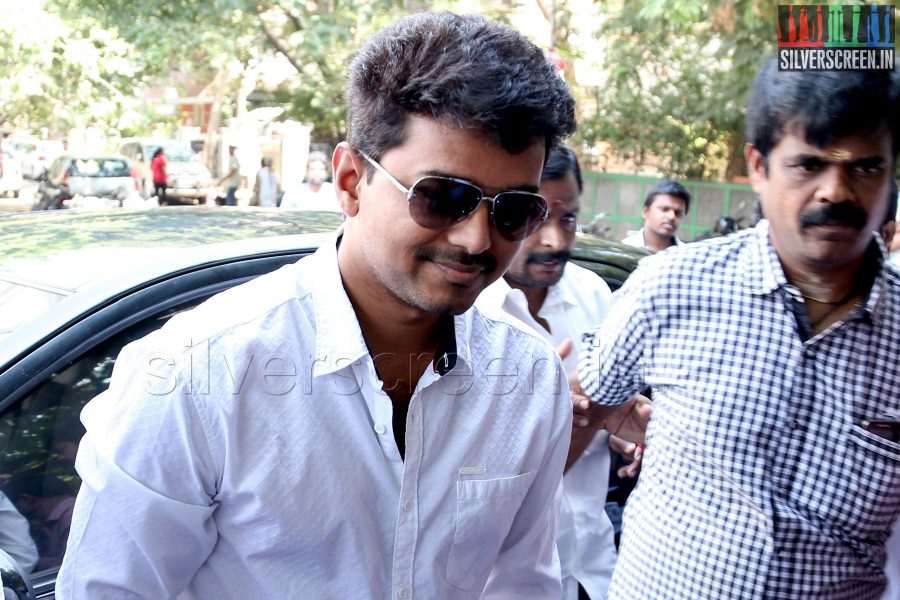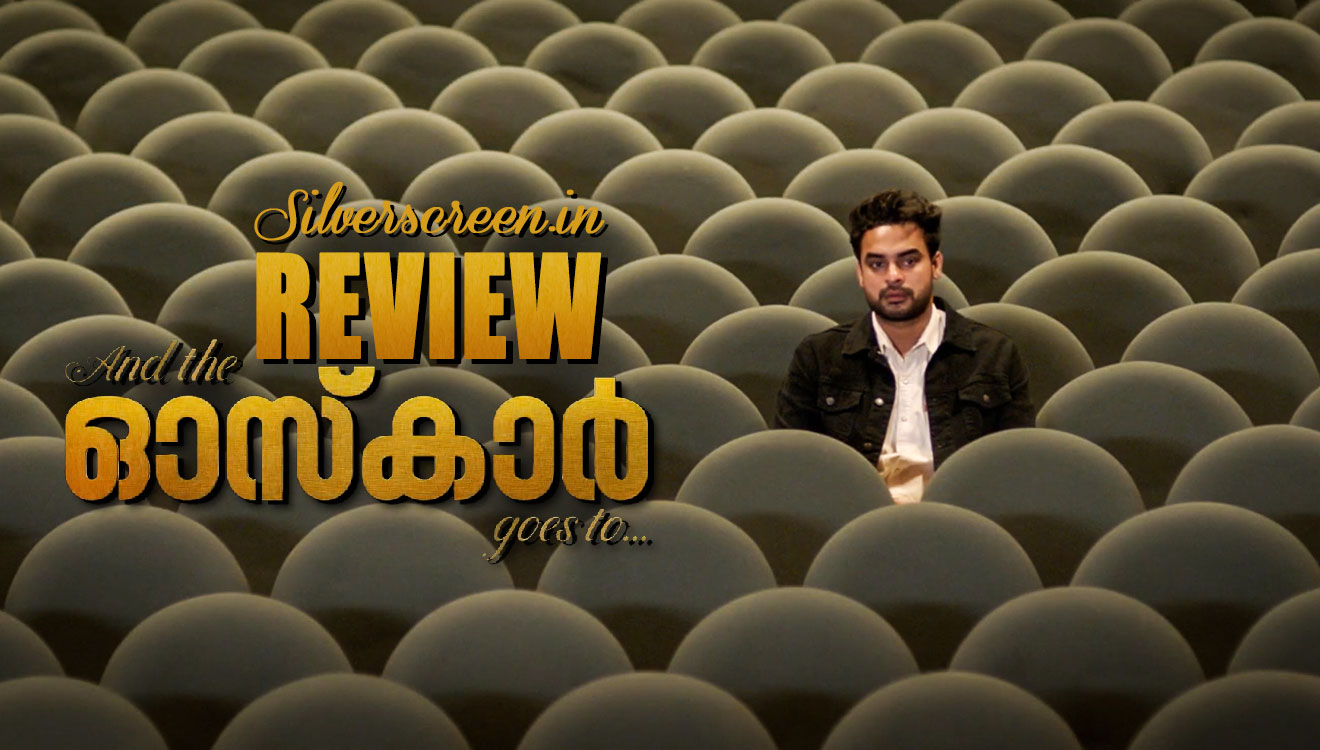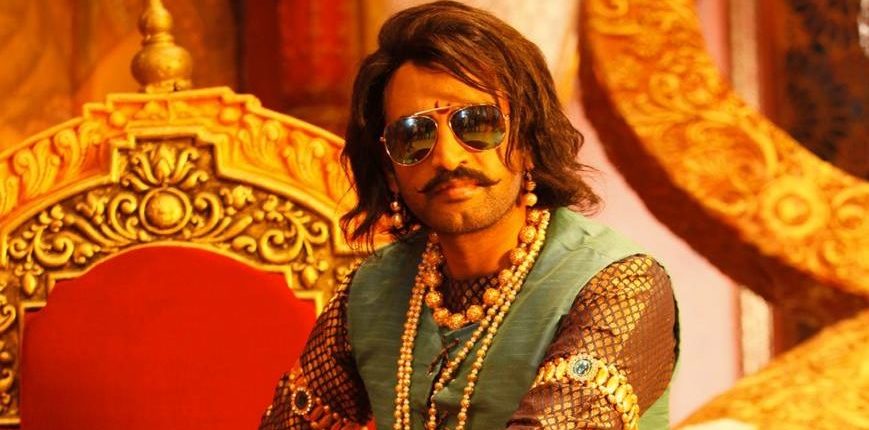Vijay’s superstardom wasn’t won overnight. Much before he began commanding a rabid fan-base, he was, more often than not, knee-deep in melancholy. Mournful love songs were his forte until he found his USP: that of the brash action hero, the self-proclaimed guardian of Tamil culture, and by extension, the virtue of womanhood.
Vijay’s origin as an actor is the stuff of legends. Or so his fans like to remind others. In his debut film, Vijay was a tall, gawky presence – all gangling arms, pasty makeup and very limited acting skills. Naalaiya Theerpu (1992) was your usual SA Chandrasekhar film – rage, violence and a deep, abiding hatred for the system. But the teenage Vijay was a misfit for his father’s fiery ideals. Throughout the film, the young actor seemed more like a convenient puppet for SAC’s ideas. He did not convincingly espouse the director’s ideas, in the way other SAC stars like Vijayakanth, Rajinikanth did.
It has taken Vijay decades to find his niche. And quite predictably, the journey to his current avatar has been quite rocky. He tried to be the social justice warrior in several films; while the template may not have been particularly favoured by SAC, Vijay nonetheless managed to hit upon a formula that catered to his fans and also espoused the ideals he adheres to.
Early on though, Vijay was just another teenage star kid trying to fit in. There were a lot of films with his director father, and in almost all of them, he played a character called Vijay. A canny move on the part of his father to register his name in collective memory.
So, there were films like Sendhoorapandi (1993), Rasigan (1994), Chandralekha (1995) – everything that saw Vijay as a young man struggling to overcome the many strictures society and class placed on him. These films gave the actor some level of fame, but he was certainly not in the big league yet.
Vikraman gave Vijay his first big hit with Poove Unakkaga (1996). The film saw Vijay as a kind-hearted young man who went out of his way to unite the families of the woman he loves, and the man she loves. The film became a comedy of errors somewhere in the middle, and transformed the budding social warrior (Vijay) into a man pining for his love. It had catchy songs, too.
This change in image helped Vijay coast during the next few years. Variations of this character were put to full use in films such as Priyamudan (1998), Nilave Vaa (1998), Ninaithen Vandhai (1998) and Thulladha Manamum Thullum (1999).
Fazil’s Kadhalukku Mariyadhai (1997) was iconic in that it established Vijay as the good boy to beat all good boys. The staid outfits Vijay wore in the film and his character’s willingness to forego his love affair for the sake of family gave his career that much needed make-over.
Other films in this period like Kushi, Priyamanavale (2000) had Vijay slightly deviating from the format to play rich, spoiled young boys who needed a lesson or two. However, all of the films cemented his reputation as the romantic hero – a soft, sensitive young man who could make a soga song look quite good.
Bolstered by the success of his films, Vijay attempted a return to his action past with films like Bagavathi, Thamizhan and Youth (2002). The actor, now a decade old in the industry, exuded a sheen of confidence as he walked through roles that required him to be a romantic hero and the saviour of the masses at the same time.
This meant that the sensitive hero of the 90s was a thing of the past. Roles in Thirumalai (2003), Ghilli (2004), Thirupachi (2005), Sivakasi required Vijay to relinquish his gentlemanly image in favour of the action hero. This was effective, good even for the actor’s career. But, it also made him a misogynist. In Thirumalai, Ghilli and especially Sivakasi (2005), Vijay plays men who take it upon themselves to school women on the things they should and shouldn’t do.
The actor also displayed an increasing tendency to treat his female leads as mere playthings. He humoured them, lusted after them, danced in foreign locations with them, but rarely made an effort to get to know their minds. This was especially true in Puthiya Geethai (2003), in which the director and Vijay made every effort to make Meera Jasmine look like an overgrown child.
This image found its zenith in Pokkiri (2007). Vijay essentially played a wastrel with exaggerated mannerisms, who brought it upon himself to tell Asin how to live her life. In a way, Vijay (like Dhanush) personified the kind of male who can only get a woman by completely breaking her down.
Curiously, by this point, Vijay had attained cult status, swept up by the phenomenal success of his many collaborations with Perarasu. The actor had finally attained the kind of stardom his father envisioned for him. Vijay found his niche playing very Tamil roles. As his fan-base increased, directors sought to capitalise on it by naming their films after him.
Thus, we were given Azhagiya Tamil Magan (2007), Vettaikaran, Sura (2009), Kaavalan (2011), Velayudham (2011) – films that followed the same template. Hero is born, hero exists, hero loves, hero is betrayed, hero takes revenge. If not for the change in music directors and female leads, these films could very well be mistaken for the other.
*****
Vijay is famously secretive about his plans for the future, but the signs were there all along. With director Vijay’s Thalaivaa (2013), attempts were made to test political waters. The establishment did not approve, and the film suffered as a result.
Jilla marked the return to form for Vijay. RT Neason’s film portrayed the forty-something actor as a wastrel yet again. With AR Murugadoss’ Kaththi (2014), Vijay made a strong case for farmers. His Puli (2015) with Chimbudeven was widely interpreted to be a strong critique of Jayalalithaa and her Government.
Theri (2016), directed by the youthful Atlee, made no bones about its desire to stay above controversies. With a peppy soundtrack by GV Prakash Kumar, and punch-worthy dialogues, the film managed to keep its head above water. The actor then took up educational system reform with Bairavaa (2017), to mixed results.
With Atlee’s Mersal (2017), there are hints that this could be Vijay’s strongest declaration yet about his political ambitions. Its title has been interpreted (by ardent fans) to resemble the tail of the bull. And, a song in the album bears the title ‘Aalaporan Tamizhan’. Fiery dialogues in the teaser show that the actor is on the cusp of unleashing his fiercest persona ever.
*****
Recommended
Vijay, like the others in the industry, is guilty of sidelining the female leads in his film. His ideas of reform, strictly from a male perspective, haven’t really supported ideals that could revolutionise the film industry and the society when it comes to the treatment of women. His characters, over the past decade at least, have all been men-children.
Nevertheless, Vijay has proved time and again that he is a director’s actor. He still says everything his director wants him to. Just like he did in Naalaiya Theerpu. There is no indication of the man beneath the makeup in any of his films. We do not know his likes, his dislikes… or even, his thoughts on sexual harassment. He plays by the rules and toes the line all the time. There just isn’t any personal connect… which, perhaps, is for the good.
Vijay’s Mersal is set to release on Deepavali.
*****



